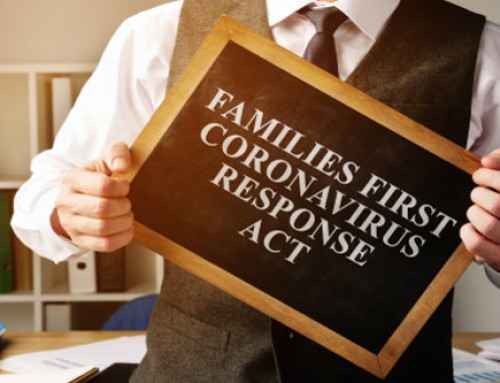Traditionally, it has been taboo to discuss religion, politics, and sex in the workplace to avoid controversial and potentially offensive and inappropriate conversations. While this may seem completely sensible, with the country more divided than ever, it has been difficult for many to bite their tongues and hold their opinions about the current political climate. Did you hear conversations about the confirmation of Justice Kavanaugh in the cubicles? What about the controversy over the NFL players taking a knee during the national anthem? As a law firm with years of employment law experience in South Carolina, the lawyers at Gignilliat, Savitz & Bettis, LLP know how important it is that employers understand what speech can be regulated in the workplace and what opinions workers are entitled to express.
What is Protected Speech?
When NFL players chose to kneel rather than stand during the National Anthem in protest, they were exercising their freedom of speech in the form of an action. In an attempt to curb this speech, NFL owners and the NFL Players Association revamped their anthem policy (which has been placed on hold) that would have fined teams whose players did not stand and would have subjected individual players to punishment. This is an example of employees exercising their freedom of speech and their employer lawfully adopting a policy that restricts political speech in the workplace.
The First Amendment to the United States Constitution states that “Congress shall make no law … abridging freedom of speech.” Most people interpret the First Amendment to be much broader than it is. Just because the state or federal governments cannot pass laws to restrict speech does not mean that people can say anything they wish. Here are a few more specific examples of what is protected:
Freedom of speech includes the right to:
- Not speak or to not take an action (salute the flag)
- Engage in symbolic speech (burn flags)
- Use offensive words or phrases to convey political messages
- Use clothing to send a message (black armbands in schools to protest war)
Freedom of speech does NOT include:
- Using words that incite others to panic or to fight
- Printing articles in a school newspaper that the school administration objects to
- Making an obscene speech at a school event
- Distributing or making obscene materials
- Making libelous or slanderous statements
- Making statements about anything anywhere at any time
Getting into the details of what are protected actions and speech can be a boggy mire. Most importantly for employers is to understand that the First Amendment restricts the government’s abilities to make rules that restrict speech, not a private employer’s abilities to set policies that restrict non-protected speech.
Speech in the Workplace
Is it permissible for an employer to ban political speech in the workplace? It depends on the type of workplace and the nature of the speech. Private employers may generally prohibit certain types of speech that a public employer may not. Employees working for government employers generally enjoy broader free speech protections than those who work for private employers. In a scenario where the employee of an elected official’s office “liked” the rival’s Facebook page, an appellate court found the speech to be protected because the employee was acting as a private citizen and the speech did not disrupt the elected official’s office.
The debate over whether to restrict speech about politics in a private workplace balances the desire of the employees to express themselves with the need to maintain a workplace that is harmonious and free of hostility. Federal civil rights could be implicated in conversations that begin about politics. For example, a conversation about a border wall may bring up a larger conversation about national origin or race. Conversations about transgender protections can result in discussing broader issues of discrimination on the basis of sex in the workplace. Conversations that start out as purely political in nature may result in actual or perceived harassment, discrimination, or other federal workplace civil rights violations.
Political speech in the workplace might bring to mind a discussion about the current political climate, but it can also be a discussion about unionizing or working conditions. Employers are generally unable to prohibit speech surrounding working conditions or the desire of the employees to act together for their mutual benefit. Section 7 of the National Labor Relations Act protects the ability of unionized and non-unionized nonsupervisory employees in the private sector to “engage in … concerted activities for the purpose of … mutual aid or protection.” While employers can generally limit political discussions that disrupt work, the National Labor Relations Board closely scrutinizes employer rules that could restrict speech protected by the NLRA in the workplace. As a general rule, employers may not limit conversations relating to working conditions, even if the conversations are relayed in terms of current events or politics.
Employers must also be cautious not to enact a policy that adversely affects a class of people in the workplace. For example, an employer might enact a policy prohibiting employees from wearing Nike apparel in the office because of the controversy surrounding Colin Kaepernick, but if workers of a particular race are the only workers affected by the policy it may be discriminatory.
South Carolina law also puts limits on political speech restrictions by private employers. State law makes it unlawful to discharge an employee from employment for the exercise of political rights guaranteed by the Constitution and laws of the United States or of the State of South Carolina. Doing so is a criminal offense punishable by a fine of up to $1,000, or two years imprisonment, or both. Employees who are discharged may also be able to bring a civil suit for wrongful termination in violation of public policy.
Speech on Social Media or in Public
Many employers look at the social media pages of their employees or potential employees. Social media has made many folks’ personal thoughts more public than private. From images of individuals in the crowd at the Women’s Marches that convened across the country to videos of people participating in the Unite the Right rally in Charlottesville, what employees choose to do on their own time can easily be published on social media and brought to the attention of their employers. Celebrities are not the only workers to suffer a backlash for their actions or opinions appearing on social media.
For example, a vice president and senior legal counsel at CBS was fired when she wrote about the Las Vegas shooting on her Facebook page, saying that she was “not even sympathetic bc country music fans are often republican gun-toters.” CBS fired her that day, saying she “violated the standards of our company.” Another example is an employee who was fired days after a photo of her flipping off President Trump’s motorcade made social media rounds after media outlets made express mention of her employer. Conversely, the NLRB ruled in favor of a restaurant worker who tweeted disparaging remarks about his employer’s pay and inclement weather policies because his tweets were “for the mutual aid and protection of employees because they concerned the workplace or employees’ interests as employees.”
What Should an Employer Do?
As this article has demonstrated, freedom of speech is murkier than the First Amendment would allude to. An employer must be careful not to discriminate and not to run afoul of protected work-related speech when implementing policies that aim to curb controversial discussion topics. Furthermore, an employer that has implemented or plans to implement a civility code or policy should ensure the policy is applied in a fair and neutral manner and, if a private employer, a manner that does not restrict speech protected by Section 7 of the National Labor Relations Act. Consult with our experienced employment lawyers for employers counseling in South Carolina when considering a policy or an action that will curb or discipline political or other speech in the workplace.






